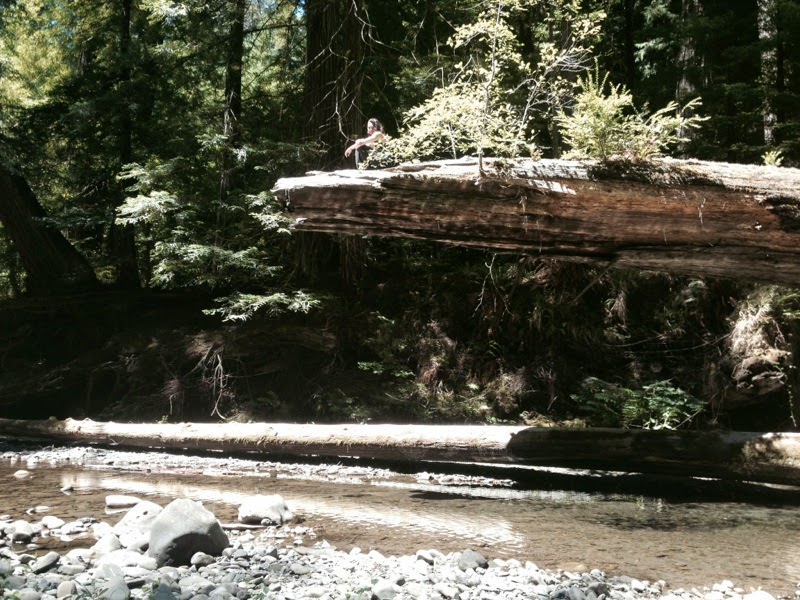It’s 2014 folks!
Elle here, and
I’m going to tackle some useful information, because much like years past, we
are not immune to the variety of scams and shams out there when it comes to
poorly mislabeled products, beautifully packaged bottles that are filled with
useless crap, and expert marketers who can and will LIE to you.
My experience with sunscreen goes way back.
When I was 16 years old, my Dad was diagnosed
with Malignant Melanoma, which is a treatable type of skin cancer which
requires surgery.
Over the years my Dad
has had to have many minor surgeries to remove Malignant Melanoma (which can
spread and be fatal if not treated).
Part of my Dad’s nose had to be cut off, in order to remove one of the
skin cancers.
This began, for me, the
era of every day sunscreen use.
Luckily,
the skin cancers were detected early, and I got to keep my Dad AND learn some
important lessons.
We need to protect
our skin.
The years passed, and I tried
ALL kinds of different sunscreens, from low SPF, high SPF, the spray stuff, the
non oily, the oily, the exotic brands, the cheap brands… you name it, I tried
it.
However, I started to notice a
pattern.
None of them, actually seemed
to work.
Sure some of them would prevent
me from burning, or slow down the burn – but I had to frequently reapply, and
it was always a matter of time before I just simply had to get out of the sun
and sit in the shade because sunscreen seemed to be useless garbage that
instead of protecting you, gave you a false sense of security, causing you to
be more reckless and prolong your exposure to the sun.
It wasn’t until my early 20s that I figured
out, that sunscreen ingredients matter, and MOST sunscreens have nothing but
useless and even harmful ingredients.
So
I’m here to give you the low down.
It’s all about the Titanium Dioxide and Zinc Oxide.
You know that white chalky stuff that you see
on lifeguard’s noses?
That’s the stuff
you want.
The whiter, the better.
The size of the molecules matter, and the quality
of your sunscreen shows by how white it turns your skin (this is what I’ve
observed anyway).
If your sunscreen does
not contain either one of these ingredients, it’s useless.
It should be listed in the “Active”
ingredient listing.
In addition, it’s
difficult to find these quality sunscreens in US stores.
99% of the sunscreens you see being sold does not have one of these ingredients, which
generally means you need to bank on getting the
sunscreen that is made for Babies.
The
sunscreen will be labeled “Baby” sunscreen.
Not “Kids”.
It’s gotta be for the
Baby!!!
Why?
Because the FDA regulations on products
designed for babies is far more stringent, so they gotta put the good stuff in
there.
The stuff that works.
The stuff that isn’t going to be extremely
harmful to your body like Oxybenzone – which is in over half of the sunscreens manufactured
and being sold on the market.
The
chemical oxybenzone penetrates the skin, gets into the bloodstream and acts
like estrogen in the body. It can trigger allergic reactions, has been linked to
endometriosis in older women and even lower birth weight.
The data on that is preliminary, but still…
so far, not so good.
You don’t want to
mess with the hormones.
I started using Baby Sunscreen on all my kids (who are 8, 6, 6, and 3), my
husband, and myself.
The stuff
works.
Sunburns are a thing of the past,
AND I can feel safer that my family is being protected not just from UVB rays
(which cause sunburn), but also UVA rays (which penetrates the skin more deeply
and has long been known to play a major part in skin aging and wrinkling,
weakens the immune system, and contributes to and may even initiate the
development of skin cancers).
Do we get
a nice tan?
Actually no.
But that’s how I know the sunscreen is
WORKING.
Tan does not equal
healthy.
Kind of the opposite
actually!
Naturally, exploration involves lots of SUN!!!
Who doesn’t love the Sun?!
I love it, and I know you do too, but let’s
protect our precious skin while we’re at play.
Because it’s no fun to pay the consequences of fun later down the
road.
More
stuff to research for sunscreen safety: Retinyl palmitate





























